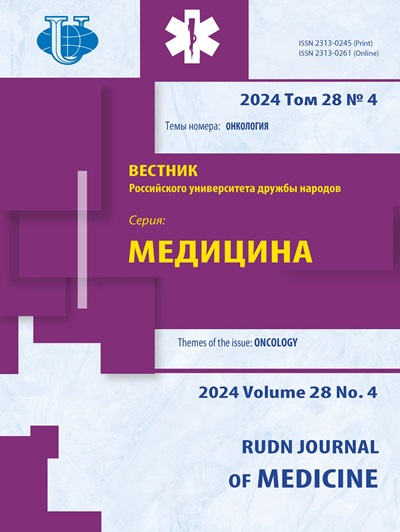Influence of adaptogens on hemodynamic disturbances in meteosensivity of patients with arterial hypertension and ischemic heart disease
- Authors: Zaslavskaya RM1, Shcherban EA2, Logvinenko SI3
-
Affiliations:
- Moscow city clinic hospital N 60
- Belgorod region hospital
- Belgorod state university
- Issue: No 3 (2010)
- Pages: 210-212
- Section: Articles
- URL: https://journals.rudn.ru/medicine/article/view/3547
Cite item
Full Text
Abstract
62 patients with arterial hypertension, stage II and III and ischemic heart disease, stenocardia II-III functional classes were divided into 4 groups. The 1st group received traditional therapy (TT): nitrates, β-adrenoblockers, ACE inhibitors, antiagregants, diuretics. The 2nd group obtained melaxen, the 3rd group - mebicar, the 4th group - eltacin on the background of TT. All patients registered arterial blood pressure and HR in the morning and evening. Correlation analysis was done between hemodynamic data and weather factors. These factors were obtained from server «Weather Russia» (meteoinfospace.ru). In TT there were revealed 64 correlations. Influence of temperature of air, atmosphere pressure, dew point on patients hemodynamics was statistically significant, especially on pulse in TT. Including melaxen decreased number of correlations till 35. Influence of temperature reduced. Dew points, direction and velocity of wind did not influence on hemodynamics. Mebicar produced 62 correlations between weather factors and hemodynamics. But influence of weather factors decreased on pulse substantionaly. Eltacin reduced number of correlations till 44. Relative numidity, cloudly were not influenced on hemodynamics.
About the authors
R M Zaslavskaya
Moscow city clinic hospital N 60Moscow city clinic hospital N 60
E A Shcherban
Belgorod region hospitalBelgorod region hospital
S I Logvinenko
Belgorod state universityКафедра внутренних болезней № 2; Белгородский государственный университет; Belgorod state university
References
















